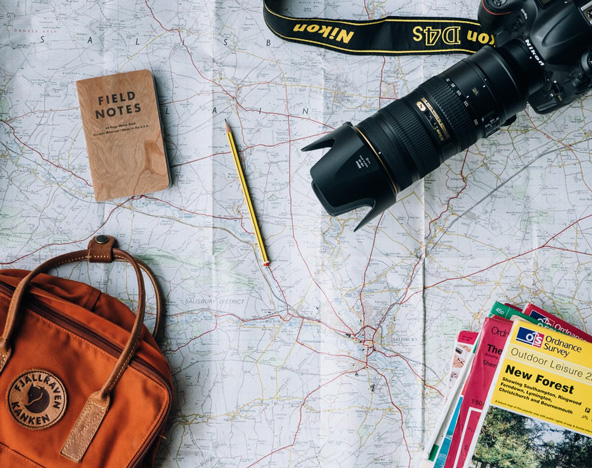Traveling is one of the most eye-opening and memorable experiences that someone can have, but it is also one of the most perfect ways to start learning a language. If you’re going traveling soon but don’t know how to use it to your advantage in terms of progressing your language skills, make sure that you try some of these 5 tips to ensure that you can master your desired language while having the time of your life on vacation.

Image via Unsplash
Don’t Be Afraid to Talk to Natives
One of the worst things that you can do when trying to learn a new language is not having enough practice of speaking to native speakers. It can be embarrassing to try and speak in a language that you aren’t completely used to or confident with, especially to people who are 100% fluent. A good thing to remind yourself of is that you don’t need to be perfect when speaking to natives. They will understand that it is not your first language and will also appreciate that you are making the effort to speak to them, rather than expecting them to speak your language in their own country. By speaking to native speakers, you can practice pronunciation, intonation and possibly even make some new friends to regularly practice speaking with.
Avoid Headphones
A key way of mastering a language while you’re traveling is to avoid wearing your headphones at all costs. By doing this, you will be able to hear constant conversations happening around you and may even pick up on new vocabulary. If you’re always listening to other’s conversations, you can get a good grasp of pronunciation and intonation, as well as providing yourself with free listening exercises. A good way to test your listening comprehension is to listen to conversations and attempt to translate them in your head to test how much you would really understand in a real-life conversation.
Take Study Books with You
Just because you’re traveling, it doesn’t mean that you can’t bring your normal study books with you. There are elements of learning a language that are impossible to master with just speaking to natives alone – they require hard studying. A great example of this is grammar and tense. In Spanish, for example, there are different words that carry the same meaning, such as words meaning ‘to be’: ‘ser’ and ‘estar’. The differences between ser vs estar can be confusing – they completely depend on sentence context, and most likely won’t be fully understood by speaking to natives alone. If you’re finding yourself sitting in a hotel room waiting for a restaurant reservation or a taxi to the airport, have a quick look over your study books to make sure that the information stays fresh.
Immerse Yourself in Media
There is nothing more overwhelming than going to a different country and finding yourself surrounded by magazines, books, TV shows and movies all in a foreign language. If you want to master a language though, you must try to embrace this scenario rather than hiding away from it. Pick up the magazines and use them as a reading comprehension exercise. If you see words that you don’t understand, it never hurts to ask someone nearby what it means – assuming they can speak English of course! You may also find that movie theaters play English language films but provide subtitles in their language, meaning that you can see a new blockbuster and learn translations at the same time!
Record Newly Learned Vocabulary
When you’re in a country that predominantly speaks the language you’re learning, you can be certain that you’re going to learn lots of new vocabulary and cool new sayings that you’ll want to remember for your studies. However, if you learn this new information on a morning while speaking to natives, you most likely won’t remember what the new information was when it comes to the evening of the same day. It is vitally important that you note down new information and new vocabulary as soon as you learn it, either in a journal or in a note app on your phone.
Learning a language while you are traveling is arguably one of the best possible ways to master that language quickly. By being constantly surrounded by it, you will be able to learn all sorts of new information and tips and tricks that you never knew existed. Make sure that you make the most out of your travels by following these tips to continue your language studies while on your travels.




